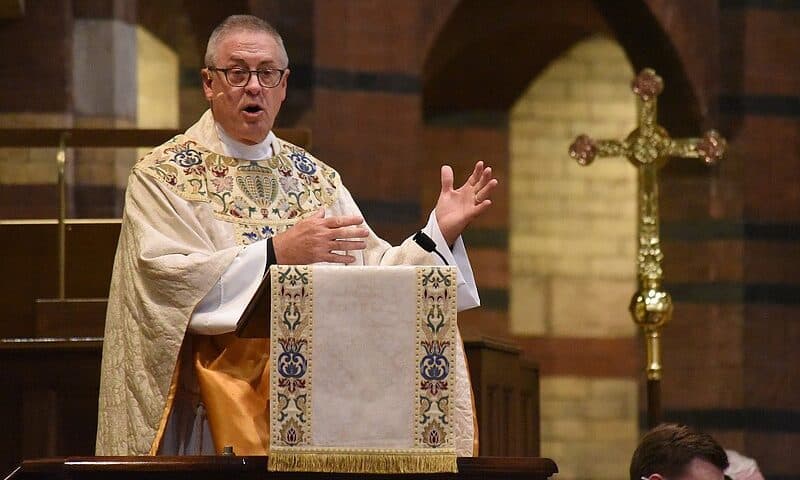The Diocese of East Tennessee has deposed Chattanooga Episcopal priest Brad Whittaker following a multi-week Title IV clergy misconduct investigation. Whittaker, who served as rector of St. Paul’s for nine years prior to his retirement, was previously in the news as the first person in the area to contract COVID.
In a letter sent to parishioners, St. Paul’s interim rector, Ed Bacon, stated that Whittaker had agreed to the outcome. Bacon also said that while details of the matter are confidential, the allegations do not involve minors.
Bacon added that the investigation identified no criminal activity.
Local media reports that The Rev. Bo Townsend, a therapist and family systems specialist, was engaged to work with the church and its leadership “during this season,” per Cole’s letter.
The parish has scheduled a series of listening sessions for parishioners who want to discuss issues involving Whitaker.
Whittaker previously served a parish close to the site of the 9/11 terror attacks in Manhattan.
Inaccurate claims of confidentiality
As a point of clarity, the Diocese’s claim that the matter is confidential is inaccurate.
Per official Title IV training materials:
“All parties need to know that the expectation of confidentiality is canonically ensured during the intake and referral stages except as the bishop deems to be pastorally appropriate or as required by law. (Title IV.6.10) Additionally, various investigations and discussions with a conciliator are confidential. However, there is not an expectation of confidentiality if Accords or other interim outcomes are made or the process reaches a Hearing Panel or trial.”
Anglican Watch notes that experts agree that it is very difficult for congregations to become healthy if disclosure does not occur on multiple fronts, including the organizational, the interpersonal, and the intrapersonal.
Similarly, former ECCT Canon for Mission Integrity Robin Hammeal-Urban states that we cannot be in the right relationship with one another when we do not know the truth about each other. Moreover, as Christians, we are called to bring light to the darkness.
Thus, vague assertions by the Diocese of East Tennessee that Whitaker’s conduct did not involve children or criminal conduct do more harm than good while providing zero reassurance to members who may be traumatized by allegations involving a beloved member of the clergy.
Next steps
Anglican Watch has long held that judicatories’ instinctive tendency towards confidentiality harms the church, often over misplaced concerns about traumatizing parishioners or fears of potential legal liability.
Therefore, while we applaud bringing in a professional with family systems experience and the plan to hold listening sessions, we encourage the bishop diocesan to explore avenues toward increased disclosure in this situation.
To be clear, that does not mean that all the gory details need to be made public. But when boundary violations are implicated, as appears to be the case here, it is almost certain that the clergyperson in question has engaged in other instances of questionable behavior.
Thus, all involved should be alert to the possibility of additional trauma in this matter.


I am Brad Whitaker’s Title IV complaint. The matter has been pushed under the rug since 2019, as I was In discernment under Brad and few priests believed my allegations as anything but flirtatious behavior by a loved and charismatic priest. I recognized his behavior and digital communication as grooming and turned in almost 600 pages of unholy conversation to the bishop and cannon. The passed me around like the woman at the well and Bishop Cole discounted me and insulted my dignity of ever turn of this process. I have managed to connect to one of Bishop Singh’s son and we will be heard. Shame on Bishop Cole, and anyone who cancelled Brad’s history and misdeeds—YOU ARe THE PROBLEM. Also, after post on The Episcopalians of Facebook page and many comments, the post was deleted.
I am deeply sorry for your experience. Unfortunately, TEC’s clergy disciplinary process often does more harm than good, as evinced by the sordid game of hot potato in the Losch case. (The victim is not Episcopal, and has been ping-ponged all over the denomination in an endless game of “not my department.”)